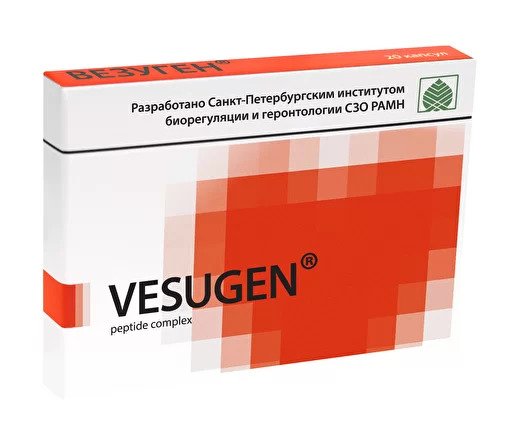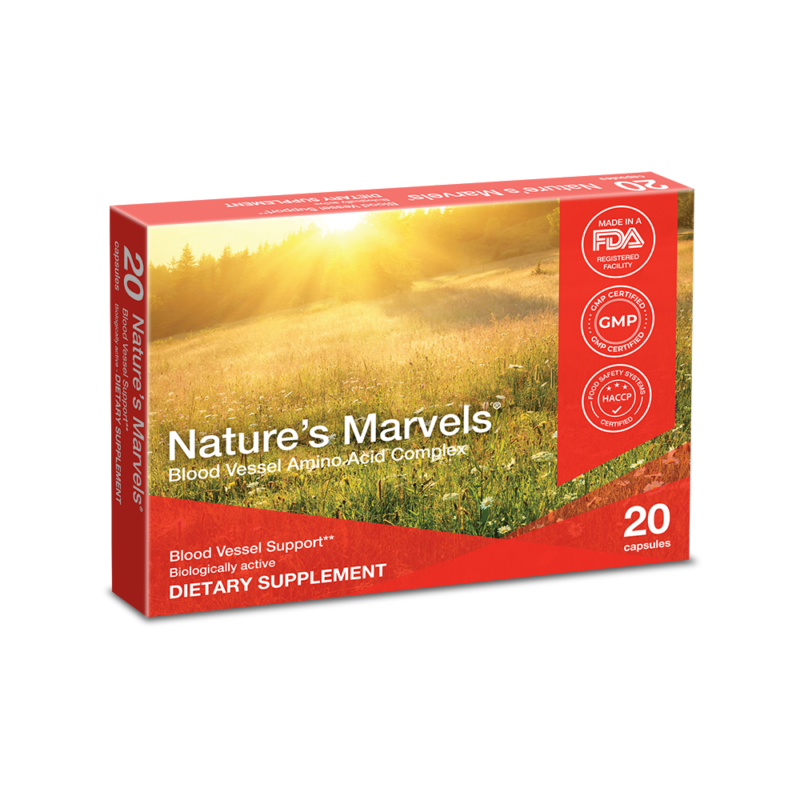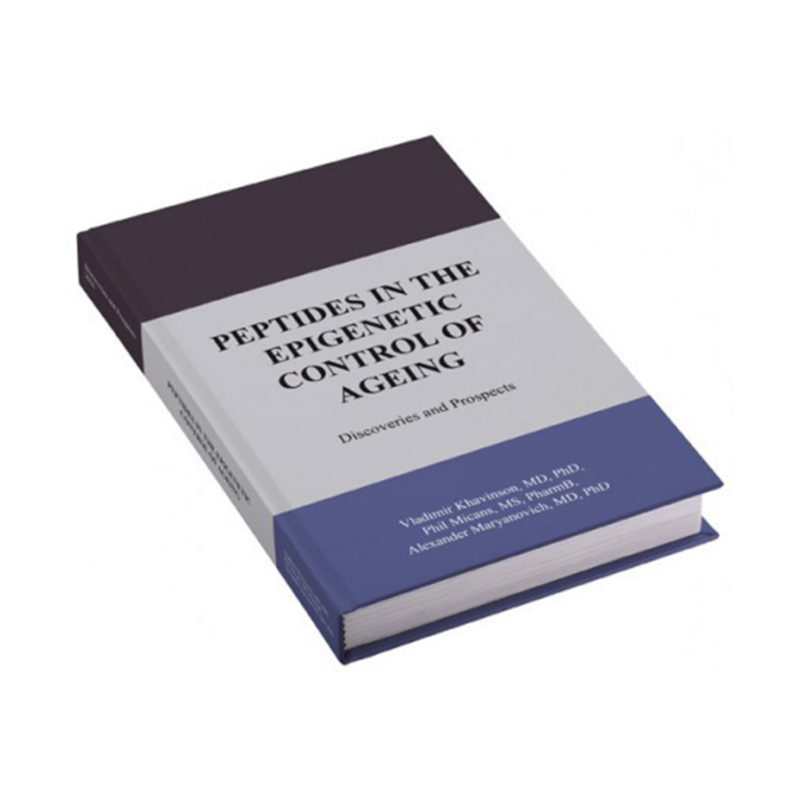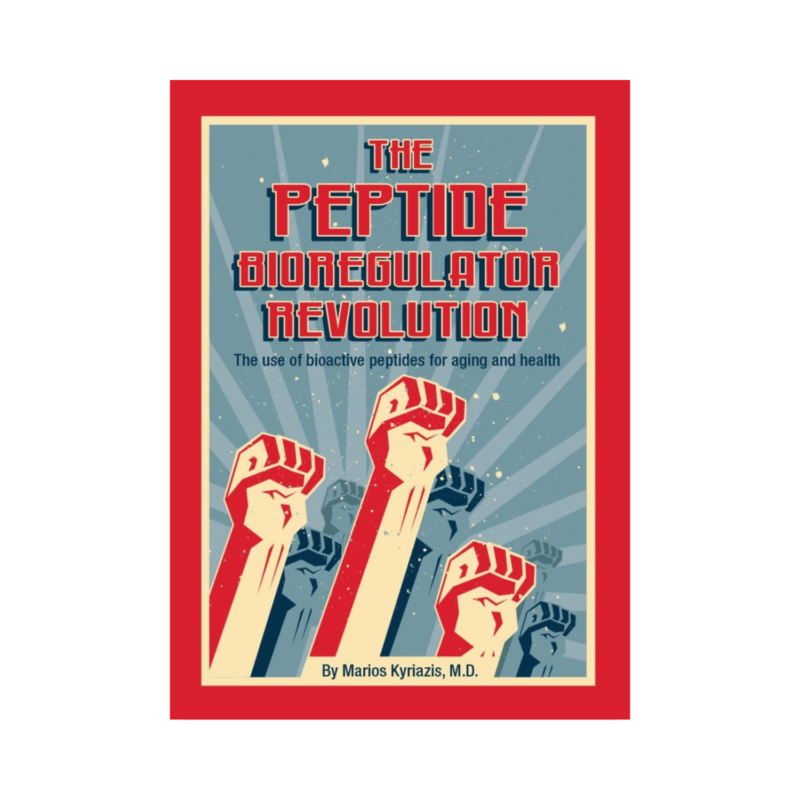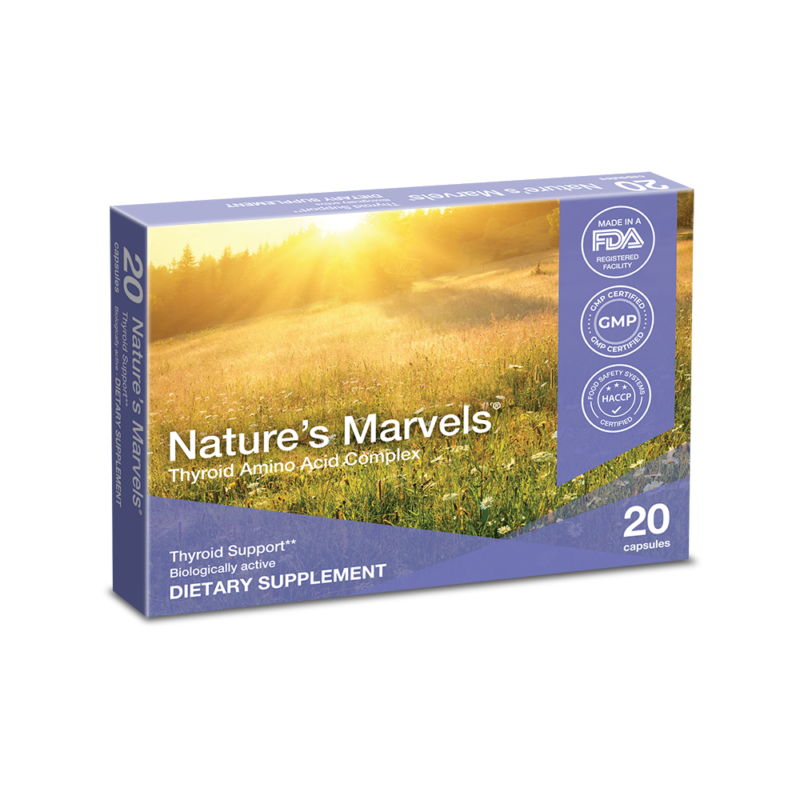
Thyroid Bioregulator (Nature’s Marvels™)
A natural desiccated thyroid
As a bioregulator for the THYROID, Testoluten has been shown to help treat both hyperthyroidism and hypothyroidism. Also a poorly performing thyroid gland can lead to autoimmune thyroiditis. May be combined with the Blood Vessel Bioregulator.
This product features in the
following categories
This product has the
following ingredients
This product is associated with the following health conditions
Age Related Mental Decline Anabolic Animal Use Antiaging Blood Disorders Bone Problems Cardiovascular Circadian rhythms Cognitive Depression Diabetes DNA Support Growth Hormone (improvement) Hashimoto's Disease Heart, arterial & blood HGH HRT (hormone replacement therapy for women- includes supportive agents) Human Growth Hormone Hypothyroidism Immune System Improvement Insomnia Insulin & Glucose Control Joints Menopause Osteoporosis Pets Photoaging RNA Skin problems Sleep Disorders Stem Cells Veterinarian Weight Loss Well-beingProduct Description
Peptide Bioregulators, gene switches that could replace stem cells!
Today Professor Vladimir Khavinson is the President of the European Academy of Gerontology and Geriatrics, but in the 1980’s he was a Colonel in the Soviet Union military medical corps. At the time, he and his team were approached by Kremlin officials, they wanted them to find a way to protect their troops from a myriad of problems; issues such as radiation for submariners in nuclear submarines to troops that may be blinded from known, (but thankfully unused) new weapons such as battlefield lasers.
What their secret research uncovered – that was used for two decades on many thousands of men and women – was a remarkable link between short chain peptides and DNA.
Now their published research is in the open and it identifies that each organ / gland / tissue uses a highly specific short chain peptide to act as a ‘short cut’ to initiate protein synthesis. These peptides can be found in food and unlike proteins they can enter the blood through the stomach. Through a comprehensive list of patents and even copyrighted PowerPoint slides, the Russian research group are showing that each of the concentrated peptide bioregulators so far examined interact with particular strands of DNA – effectively and very specifically activating repair and regenerative processes.
This is a remarkable story since what we are describing here are individualised gene switches and since they have been tested for many years on thousands of individuals, without report of any serious side effects or contraindications to date, they could be set to ‘out do’ stem cells. Why? Because this peptide therapy is relatively cheap, highly specific, can be taken orally and doesn’t require any suppression of the immune system to operate fully.
Professor Khavinson and his award winning team at the St Petersburg Institute of Biogerontology have discovered that each organ / gland has a biological reserve and despite the origin of the tissue they have studied, incredibly each one is always set at 42%
Even dosing doesn’t need to be daily, these peptide bioregulators have been shown to act even after a simple course of 2 capsules daily for 10-days. Healthy individuals only being encouraged to repeat the course 6-months later, although of course depending on the need this course can be repeated every 3-months, 2-months or 1-month if necessary. But compared to a hormone replacement therapy this is interesting, since hormones would require almost daily application. But these peptide bioregulators aren’t hormones, they are acting on the gland concerned to ‘encourage’ it to become active and effectively ‘younger’ by triggering / activating the DNA responsible.
Here at IAS we are excited about this emerging technology and have been following it since 2010 and will be reporting much more, though articles, interviews and videos etc., so please stay tuned. There’s more to learn including the synergistic interaction of the peptide bioregulators themselves and if individuals are using hormones concurrently, then there may well be a need to monitor their blood levels more closely with a view to lowering those doses and applications etc.
Note: Of the 20 or so peptide bioregulators available IAS has chosen the following, (and will be adding more into the range in due course). All the sources of these Peptide Bioregulators are from carefully chosen extract from young animals and processed through pharmaceutical processes and filters.
Currently all of these peptide regulator capsules enjoy registration on the Russian market as food supplements.
What can you expect from the peptide bioregulators?
Bonothyrk® is the Parathyroid Peptide Bioregulator.
Bonomarlot® is the Bone Marrow Peptide Bioregulator.
Cerluten® is the Brain Peptide Bioregulator.
Chelohart® is the Heart Peptide Bioregulator.
Chitomur® is the Bladder Peptide Bioregulator.
Endoluten® is the Pineal Peptide Bioregulator.
Glandokort® is the Adrenal Peptide Bioregulator.
Gotratix® is the Muscle Peptide Bioregulator.
Libidon® is the Prostate Gland Peptide Bioregulator.
Pielotax® is the Kidney Peptide Bioregulator.
Sigumir® is the Cartilage Peptide Bioregulator.
Suprefort® is the Pancreas Peptide Bioregulator.
Stamakort® is the Stomach Mucus Peptide Bioregulator.
Svetinorm® is the Liver Peptide Bioregulator.
Taxorest® is the Lung Peptide Bioregulator.
Testoluten® is the Testes Peptide Bioregulator.
Thyreogen® is the Thyroid Peptide Bioregulator.
Ventfort® is the Blood Vessel Peptide Bioregulator.
Visoluten® is the Retina Peptide Bioregulator.
Vladonix® is the Thymus Peptide Bioregulator.
Zhenoluten® is the Ovary Peptide Bioregulator.
IAS is the first western organisation to make these peptide bioregulators available and we shall be reporting regularly on them.
Frequently Asked Questions About PEPTIDE BIOREGULATORS
Disclaimer: Please note that only your own physician can determine your precise needs, but in order to give you some information these answers are based upon the ‘average person’ and clinical / published results.
- Which PB is best for blood pressure?
- Ventfort® -start at 2-capsules daily for 30-days, repeat at 2 capsules daily for 10-days each month. As the condition improves the 10-day cycle can be reduced to every 2, 3 or even 4 months. Don’t overlook the possibility that low levels of magnesium could be involved.
- Which PB is best for atrial fibrillation?
- Chelohart®- start at 2-capsules daily for 30-days, repeat at 2 capsules daily for 10-days each month. As the condition improves the 10-day cycle can be reduced to every 2, 3 or even 4 months. Note: Don’t overlook the possibility that low levels of progesterone and/ or magnesium could be involved.
- What does the muscle peptide Gotratix® do?
- The Gotratix® peptide regulates the metabolism processes in muscular cells, improves their safety margin and has a favorable effect on adaptive capabilities in extreme conditions; it also has antioxidant properties and helps to regulate the peroxidation processes in the muscular tissues. Thus, it can be expected that Gotratix® is an effective means to restore the function of muscles under intense physical load, like those involved in sports.
It is commonly known that various means and methods of pharmacological and more recent genetic correction, can be used to improve the physical performance capability of athletes and their adaptation to increased physical and psycho-emotional loads, (Seyfulla, 1999; Yakimov, 2001). Irrefutably evident is the fact, that athletes using banned pharmaceutical products, cannot maintain stable high competition for a long time, because they have physiological failures at the high loads, (Semenov et al., 2002). The risk is made worse because of many new stimulators, whose doping effect is disguised by different food and vitamin additives, (Mikhailov, 2006).
Therefore this is not only an issue of the early detection of the negative consequences of administration of modern doping substances, but also the need to develop methods for the bioregulation of physiological reserves for high-qualification athletes; to help create effective prevention of physical de-adaptation in their training cycles.
Furthermore, maintaining the spare capacity of the muscular system is also a problem for people who do moderate physical exercise and especially for older individuals who may be developing sarcopenia.
A clinical study of Gotratix® peptide efficiency was carried out at the Medical center of Saint Petersburg Institute of Bioregulation and Gerontology between April till November 2011. The study included 37 veterans of sport aged between 40 and 65 years, including 19 men and 8 women who specialized in rowing and track-and-field athletics. Those examined in the control group (17 persons), had been training under a general program. Athletes in the treated group (20 persons), in addition to basic training also took Gotratix® at 2 capsules twice daily (at mealtimes) for 30 days.
It was established that the application of Gotratix® resulted in the improvement of the general condition of the patients in the treated group over the controls. All treated patients noticed an increase in their physical efficiency. The parameters of speed and force for dynamometry and standing long-jump were significantly higher in the treated group when compared to the controls. Step-test and dorsal spine mobility parameters in the persons examined, taking Gotratix®, were also improved over the controls.
- Does it make sense to take the Thyreogen® peptide if my thyroid has been removed completely and subsequently I’m taking 240 mgs of Armour thyroid? I wasn’t sure if it was pointless if I have no thyroid.
- You are correct that in this instance it would be pointless. The peptide bioregulators work by initiating the ‘biological reserve’ of the gland/ organ in question. If that gland has been removed nothing can be initiated, therefore as you are currently doing the only way to address such a situation is to take the relevant hormone.
- I need to provide a peptide bioregulator for someone that had a heart attack and with CHF. I wanted to know what is your opinion?
- Professor Khavinson’s recommends the following peptide bioregulators for their synergy:
- Heart peptide (Chelokhart®)
- Blood vessel peptide (Ventfort®)
- Liver peptide (Svetinorm®)
The intensive course is 2 (QD or BID) capsules daily for 30-days, thereafter 2 capsules QD for 10-days each month.
It is worth noting that the published work of cardiologist Kenneth Kensey suggests that the two most important criteria to assess risk of heart attack (or stroke) are blood viscosity and arterial stiffness. Another recent publication even suggested that Alzheimer’s may be due to viscous blood too! So an answer is to keep arteries ‘soft’ and blood ‘thin.’
Published in December 2013 in the Journal of Aging Science are supplements that can reverse arterial stiffness. The fastest to work are those that can release nitric-oxide, L-arginine and L-citrulline, (Nitric-Pro® powder and Neo40® lozenges respectively- nitric-oxide levels can be tested with Neo40® saliva test strips.) Plus anything that acts as an anti-glycation agent is excellent also, this could be metformin, aminoguanidine or L-carnosine.
To ‘thin’ blood supplements with resveratrol can assist, as can the enzymes in Boluoke® and Wobenzym®. A child’s aspirin is the ‘classic’ approach, but its long term use can damage the stomach lining.
For additional protection, choose Bio En-R’Gy C® (a vitamin C drink that also contains ribose which is excellent to maintain pulse and MSM to reduce inflammation) and CoQ10 in high doses should also be considered, (or idebenone in lower doses).
I am interested in about 7 of them for different concerns. For example I would like to try the 3 recommended for vision, as well as adrenal, thymus, pineal, and maybe cartilage. Is it possible to take 3 for 10 days, then the other 3 or 4 the next 10 days of the month? Or should you alternate months taking 3 or 4 each month?
There is no problem with combining them all at the same time. This is because each has a highly specific gene reaction that is only applicable to that gland or organ. Of course in some cases the improvement of particular hormones could interfere with each other and this should be noted and monitored.
The best beginning is to know one’s weak points and address them first. That can also give a target for dosing, i.e. to dose the weak points more aggressively and the others less so.
As you may remember from the Aging Matters™ article, general support can be as little as 2-capsules a day for 10-days (that’s one package) followed up again in 6-months. Dependent upon the need the follow up could be each 4, 3 or 2 months.
An aggressive dosing schedule is 1 or 2 capsules twice daily for 30-days.
How should a 70 year old lady with Multiple Sclerosis be treated?
A difficult case but you can try Cerluten® – nervous system peptide, Endoluten® – pineal peptide, and Ventfort® – blood vessel peptide. You can combine them for example in the following way: 1 capsule of each in the morning and 1 capsule of each again in the evening for at least 30 days; repeated as necessary.
How should a 67-year old post-menopausal woman who has chronic insomnia be treated?
Try Endoluten® – pineal peptide – 2 capsules daily for 1-month, repeated as necessary. This will improve melatonin secretion.
How should a 68 year old man with chronic fatigue with sleep problems be treated?
Try Endoluten® – pineal peptide – 2 capsules daily for 1 month but this may require regular repeat dosing.
How should an insulin dependent diabetic be treated?
Difficult if there is a strong insulin dependency, try Suprefort® – pancreas peptide – and Endoluten® – pineal peptide.
How should a type 2 diabetic or a person with metabolic syndrome/insulin resistance be treated?
Combine Suprefort® -pancreas peptide – and Endoluten® – pineal peptide
What combination of peptides would be best to consider for the elderly in general?
Glandokort® – adrenal peptide, Vladonix® -thymus peptide and Ventfort® – blood vessels peptide.
Would there be a difference between dosing for men and women?
Not particularly, the dosing is more related to need than sex or bodyweight
Is it best to include the blood vessel peptide in all combinations used?
Yes it is recommended, the blood vessel peptide is known as Ventfort®
What peptides would be recommended for a menopausal lady with osteoporosis?
Sigumir® is the cartilage peptide but will be required with regular repeats
How to correct disorders of the immune system?
Combine Vladonix® – thymus peptide, Endoluten® – pineal peptide and Ventfort® -blood vessel peptide
How to correct disorders of the thyroid?
Combine Thyreogen® – thyroid peptide and Ventfort® – blood vessel peptide
How to correct disorders of the kidneys?
Combine Pielotax® – kidney peptide and Ventfort® – blood vessel peptide
How to correct disorders of the testes?
Combine Testoluten® and Ventfort® – blood vessel peptide
How to correct disorders of the prostate?
Combine Libidon® – prostate peptide and Ventfort® -blood vessel peptide
How to correct disorders of the retina?
Combine Visoluten® – retina peptide and Ventfort® – blood vessel peptide
How to correct eyesight problems in general?
Combine Visoluten® -r etina peptide, Ventfort® – blood vessel peptide and Cerluten® – brain peptide
How to correct disorders of the liver?
Combine Svetinorm® – liver peptide and Ventfort® – blood vessel peptide
How to correct disorders related to the central nervous system?
Combine Cerluten® – brain peptide and Ventfort® – blood vessel peptide
How to correct disorders related to the adrenal glands?
Combine Glandokort® – adrenal peptide and Ventfort® – blood vessel peptide
What is the typical dosing regimen for the peptides in general?
Two capsules a day for 10-days – a total of 20 capsules equivalent to one pack – for general support this can be repeated again in 6-months’ time, if the need is greater then it can be repeated again in 2 to 3 months’ time, if the need is felt to be great then typically the regimen is repeated every month.
- This is a case of neovascular retinal overgrowth treated with laser ablation. Now there is a central blind spot where the laser also destroyed the retinal cells.
As a rule apply a complex of peptides – retinal peptide (Visoluten®), peptide from the brain (Cerluten®), immune peptide (Thyreogen®), peptide from vessels (Ventfort®); in order to reduce macular edema and to reduce vascularization.
- Spinal stenosis treated with Spinal fusion and finally Laminectomy. Now still has peripheral nerve symptoms including muscle pain and weakness.
In case of spondylarthrosis we apply a course of peptide preparations from cartilages (Sigumir®), nervous system (Cerluten®) and vessels (Ventfort®).
